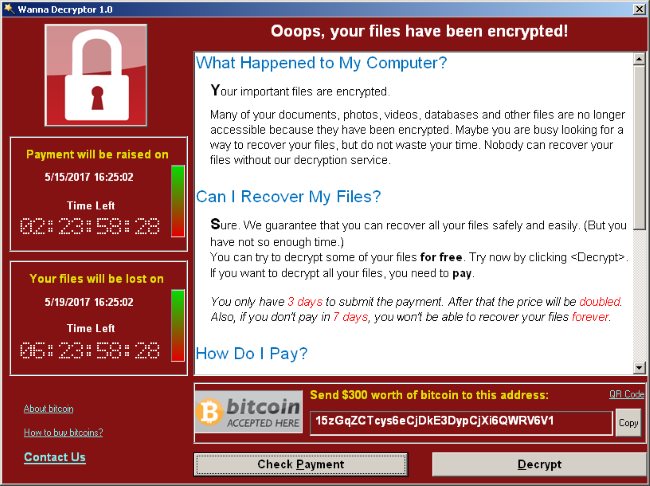WannaCry Ransomware Threat
6:19 am - 18th May 2017

If you’ve done your best to stay away offline for the past two days so you could actually enjoy your weekend, you undoubtedly now find yourself trying to catch up on all the news surrounding WannaCry ransomware. This unprecedented malware attack began sweeping the globe late last week, and security researchers estimated that nearly 57,000 computers in more than 150 countries were infected by the end of the day on Friday. While the spread of this terrifying ransomware was slowed on Saturday, it was hardly stopped. As of Monday morning, more than 200,000 systems around the world are believed to have been infected.
WannaCry is far and away the most severe malware attack so far in 2017, and the spread of this troubling ransomware is far from over. In this post, we’ll tell you what WannaCry is, what developments we’ve seen over the past three days, and how to protect yourself.
What is WannaCry?
First and foremost, let’s clarify exactly what WannaCry is. This malware is a scary type of trojan virus called “ransomware.” As the name suggests, the virus in effect holds the infected computer hostage and demands that the victim pay a ransom in order to regain access to the files on his or her computer.
What exactly does WannaCry do?
RansomWare like WannaCry works by encrypting most or even all of the files on a user’s computer. Then, the software demands that a ransom be paid in order to have the files decrypted. In the case of WannaCry specifically, the software demands that the victim pays a ransom of $300 in bitcoins at the time of infection. If the user doesn’t pay the ransom without three days, the amount doubles to $600. After seven days without payment, WannaCry will delete all of the encrypted files and all data will be lost.

How can I protect myself from WannaCry?
Regardless of which operating system you run, you should install any and all available security updates immediately. Specifically, Windows users with machines that run Windows XP, Windows 8, or Windows Server 2003 should immediately install this security update released on Friday by Microsoft. If your computers are in a business environment, there are a lot more variables involved to ensuring you are safe. Contact PC Quest to assist you with your business IT needs.